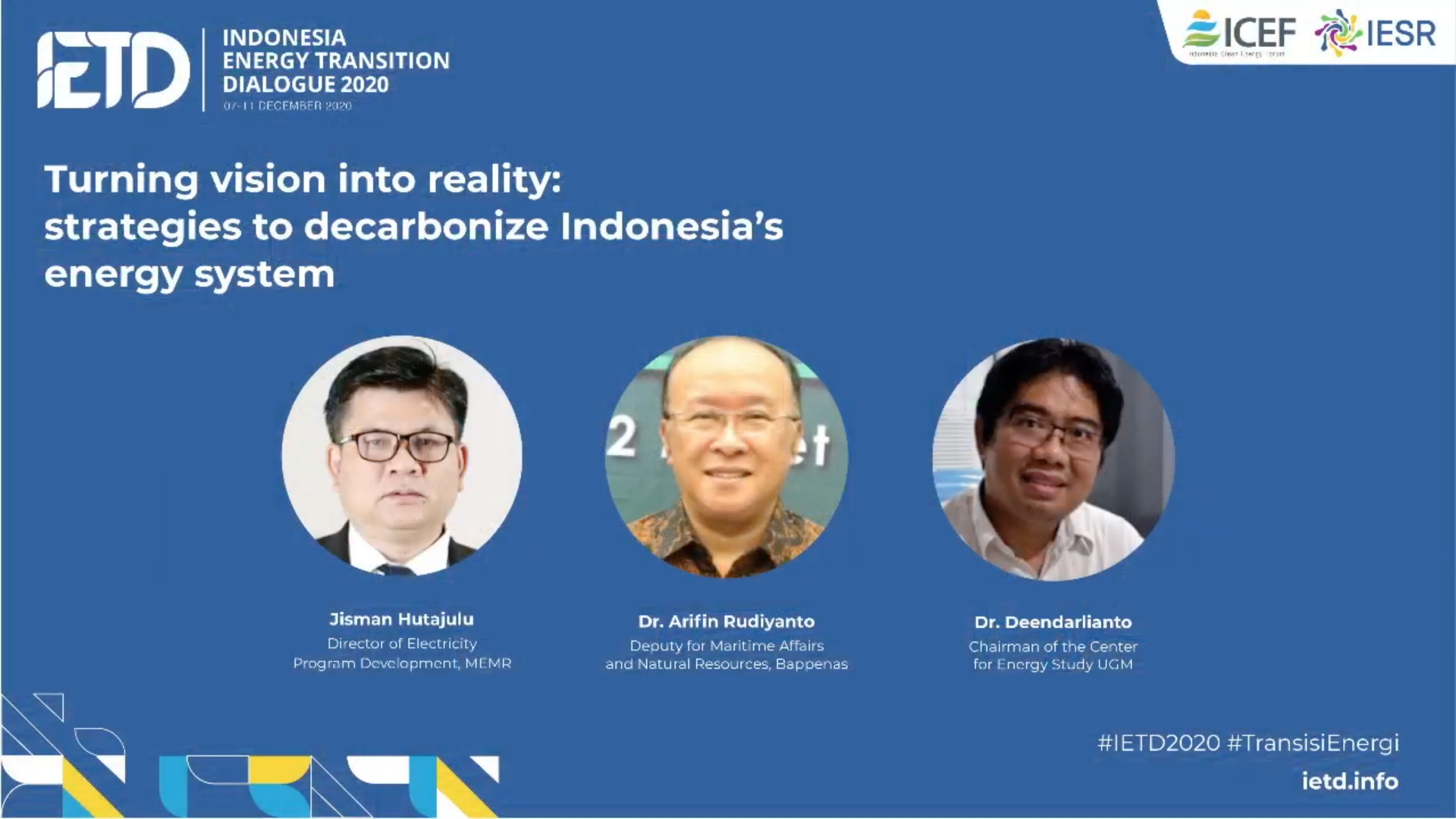Day 4 The 3rd Indonesia Energy Transition Dialogue 2020 | #IETD2020 #TransisiEnergi
Reducing carbon emissions through renewable energy transition needs to consider all aspects other than energy source. The goal is to ensuring just energy transition.
Therefore, the Institute for Essential Services Reform (IESR) published a series of reports outlining scenarios of renewable energy transition model structure for the road map of the National Energy General Plan (RUEN). Based on the national policy changes this year, the model structure would not achieve carbon emission reduction target by 2025. “The renewable energy transition only achieved 15%,” said IESR Executive Director, Fabby Tumiwa.
However, if the plan to stop using Coal Power Plants in 2029 was applied, Indonesia could contribute 24 GW of renewable energy in 2025 and 408 GW in 2050. Using this model structure scenario, greenhouse gas emissions could decrease by 700-750 million tonnes of carbon by 2050.
In the report, IESR also advocated achieving the decarbonization figure. Two main sectors that must be prioritized for transition are electricity and transportation. The government must accelerate the electricity mix in transportation with renewable energy, while in the electricity sector, the government must implement a moratorium on new Coal Power Plant.
Director of Electricity Program Development of the Ministry of Energy and Mineral Resources (ESDM), Jisman Hutajulu, said that limiting coal consumption at coal power plants must be balanced with the government’s efforts to maintain affordable electricity rates. “Coal has a large consumption and that keeps the price of electricity affordable. If the price of renewable energy is close to that price, we can aggressively undergo energy transition,” said Jisman.
Jisman said that for now, the government had implemented blending—using biofuel for power generation. Jisman said 815 GW generated from it had gone well. Up to this point, there has been a potential of 1.8 GW as the result.
Head of the UGM Center for Energy Studies (PSE), Dr Deendarlianto, said that transition from coal to renewable energy should be done slowly. Based on the PSE survey, Indonesia is still in need of massive research and development. With limited research and development, coal restrictions will disrupt electricity system.
“Imports will surge, then the economy will be disrupted. We can do vehicle electrification, but only for new vehicles so that the investment will not be too expensive. According to our study, electric cars that can enter Indonesia are only 400,000 at most and can only increase 2% each year,” said Deen.

